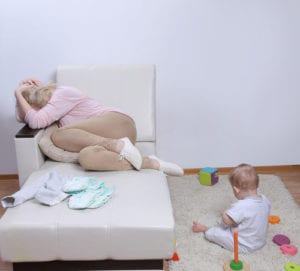Postpartum depression affects 11-20% of women who give birth each year according to the Centers for Disease Control. Averaging on 15%, approximately 600,000 women get postpartum depression in the United States each year.
Postpartum Onset
Postpartum depression occurs after birth. The cause of postpartum depression is still controversial as many researches search for a way to effectively treat it. Unfortunately, PPD has some long lasting effects beyond just the time period after birth. For example, PPD can affect the mother’s relationship with the child. For many mothers, this is the most heartbreaking and frustrating part of PPD. Mothers and their newborn infants are meant to have an unbreakable bond. However, PPD causes many mothers to feel disconnected from their children. Mothers can feel depressed, unworthy, angry, or uninterested in their child. Unable or unwilling to feed, nurture, or be with their infants, mothers lose out on some of the most critical bonding and development time in their newborns. Many mothers develop a sense of grief, disdain, or guilt because of this. Complications in bonding during PPD can translate throughout the entirety of the mother-child relationship. Problematically, if a mother gets pregnant again and does not suffer PPD, the child can feel extremely neglected, which will lead to emotional and psychological complications.
Partners Also Suffer
Postpartum depression doesn’t only affect the mothers, it can affect the partners as well. When one parent is unable to meet the needs of their child, all the responsibility falls on the other parent. Unfortunately, the primary bond is between the mother and the child. Partners can become bitter, resentful, and overwhelmed by the responsibility. Additionally, they not only have to completely take care of the newborn, but they have to take care of their depressed partner as well.
Tragically, postpartum depression can lead to death. Suicide and infanticide are sad consequences of postpartum depression. A mother might become so overcome by her condition that she chooses to take her own life. She might make the rash decision to save her own life but end her child’s. In some cases, a mother might take both her life and the life of her newborn.
Recovery is possible for postpartum depression with careful treatment, intensive therapy, and family programming. Avalon By The Sea is a certified residential mental health treatment facility, offering healing and hope to mothers in need. For a confidential assessment or more information on our programs, call 1 888-958-7511.










